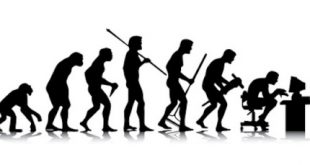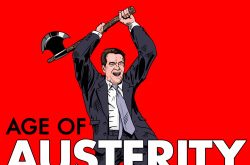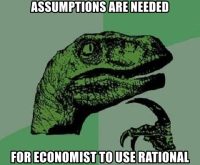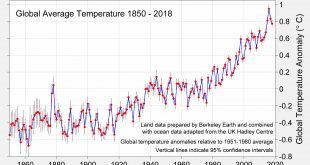from Lars Syll It probably shouldn’t worry us if some pocket of the population saw a decline in IQ as things like education and diet affect IQ and these factors can vary from one group or time to another. But according to this new study it doesn’t appear to be some small segment of the population whose IQ is going down. It appears to be the entire nation of Norway. When scientists from the Norway’s Ragnar Frisch Centre for Economic Research analyzed some 730,000 IQ tests given to...
Read More »The fallacy of Ricardian equivalence
from Asad Zaman Stiglitz: Ricardian equivalence is taught in every graduate school in the country. It is also sheer nonsense [see “Quotes Critical of Economics” for more.] This post explains why. In this post, we will create a simple model that demonstrates some fundamental truth of Modern Monetary Theory. This is a variant of “.Simple Model Explains Complex Keynesian Conceptss“, We will show the following phenomena A Market Economy naturally creates an equilibrium with high...
Read More »A push to make ecocide an international crime
Why do we wait until someone has passed away before we honour them? I believe we should overcome our embarrassment, and say it while they are with us. In this spirit, I want to tell you about the world-changing work of Polly Higgins. She is a barrister who has devoted her life to creating an international crime of ecocide. This means serious damage to, or destruction of, the natural world and the Earth’s systems. It would make the people who commission it – such as chief executives and...
Read More »The real public debt problem
from Lars Syll The claim that our public debt is excessive has been used as a major justification for austerity – cuts in spending. That massive debt, we are told, 1) must be repaid, 2) threatens our country with bankruptcy, and 3) is a burden on future generations. All these are wrong. Let me explain why … Britain’s national currency is managed by our central bank, the Bank of England, owned by the citizens of the United Kingdom (that is, our elected government). As a result, the British...
Read More »It is time to open up university departments of economics for alternative schools of thought.
from Peter Söderbaum Research and education in universities is subdivided into disciplines. There are departments of economics and departments of political science for example. Specialization and division of labour is thought of as being fruitful; Economics is about resource allocation at the micro and macro levels while political science is about democracy and governance. Something is sometimes gained through specialization but there are losses as well. This opens the door for...
Read More »The rational expectations putsch
from Lars Syll The tiny little problem that there is no hard empirical evidence that verifies rational expectations models doesn’t usually bother its protagonists too much. Rational expectations überpriest Thomas Sargent has defended the epistemological status of the rational expectations hypothesis arguing that since it “focuses on outcomes and does not pretend to have behavioral content,” it has proved to be “a powerful tool for making precise statements.” Precise, yes, but relevant and...
Read More »Economic beliefs
from Richard Norgaard Economistic beliefs are not detrimental because they are mere beliefs. People need a belief system to live together. Yuval Harari develops this argument around the following statement. “Any large-scale human cooperation – whether a modern state, a medieval church, an ancient city, or an archaic tribe – is rooted in common myths that exist only in people’s collective imagination” (Yuval Harari, 2014, p. 30) Many critiques of the recent neoliberal economy make the same...
Read More »Mainstream versus Minsky
from Asad Zaman Krugman fails to understand Minsky On the one hand, Minsky has been transformed from an eclectic outcast to a darling of the mainstream after the crisis. On the other hand, Krugman and others have failed to appreciate the central insights of Minsky, just as they did with Keynes. While Keynes had completely rejected mainstream theories on solid grounds, Hicks and Samuelson constructed a neoclassical synthesis which conceded the short-run to Keynes on the basis of short run...
Read More »Capitalist priority to growth and profits over people and planet
from Richard Smith Given this unprecedented existential crisis one might expect governments would responsibly meet this climate emergency with emergency plans to prevent ecological collapse bold proposals for “deep emissions reductions in all sectors,” for “far-reaching transitions in energy, land, infrastructure, and manufacturing” and so on. After all, the 2018 IPCC 1.5°C report makes clear that on present trends we could be facing the collapse of agriculture in California, the Great...
Read More » Real-World Economics Review
Real-World Economics Review




